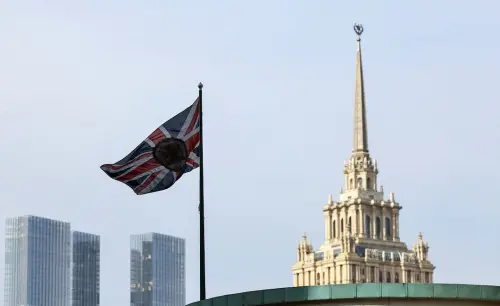In a recent diplomatic development in London on March 14, two British diplomats were expelled amid a spying dispute with Russia. The Russian foreign intelligence service condemned Britain as "a warmonger" and a close ally of Vladimir Putin threatened to seize UK assets in Russia. While the U.S under Donald Trump aims to improve relations with Moscow, Britain has found itself labeled as Russia's top enemy.
The Russian intelligence agency described London as a global "warmonger," accusing it of obstructing Trump's peace efforts in Ukraine, similar to its role prior to the World Wars. The conflict in Ukraine, stemming from Russia's invasion in 2022, has become Europe's most significant and deadly conflict since World War Two.
With tensions escalating, British Prime Minister Keir Starmer's proposal to deploy troops in Ukraine for peacekeeping purposes has further agitated senior Russian officials. The diplomatic back-and-forth between the two nations escalated with tit-for-tat expulsions.
Despite being a favored destination for Russian investments, Britain's historic distrust dates back to the nineteenth century Crimean War. The current anti-British sentiment in Russia, coupled with a softened anti-U.S. stance, may leave London vulnerable in its relations with Moscow as the conflict continues.
As Russia seeks favorable terms for peace amid economic strain, London's role in supporting Ukraine militarily has intensified hostilities. The strained British-Russian trade relations and the potential retention of Western sanctions present challenges for future engagements between the two nations.
While some Russian commentators highlight London's perceived meddling, others argue that Britain's military capacity is insufficient compared to Russia's. The ongoing dynamics between the two countries underscore the complexities influencing their diplomatic landscape.
